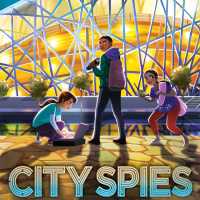Book Review: The A.I. Chronicles by Ellen Campbell
 The A.I. Chronicles by Ellen Campbell (editor)
The A.I. Chronicles by Ellen Campbell (editor)
Genre: Science Fiction
Publisher: Windrift Books (March 13, 2015)
Tiara’s Rating: 3.5 of 5 stars
The A.I. Chronicles houses a collection of short stories by many emerging and best-selling names that take on the concept of the artificial intelligence from military based stories to stories that feature hybrids of machine/machine or man/machine to stories that are more quizzical in nature about what it means to be alive. I would love to talk about every story in this book, but if you regularly read my reviews, you’ll find that I am long-winded enough. I can’t say that every story in this book is a winner. That can be said of any anthology of stories, though, but there are a very good crop of stories in this book.
I love science fiction, which I wrote a very public love letter to for Fantasy Cafe’s Women in SF&F Month, especially science fiction where artificial intelligence factors in heavily. I’d learned about this book about three months prior to its release and read it as soon as I could make the time for it between an already busy reading schedule.
The A.I. is probably arguably one of the more interesting subsets of science fiction because it poses a psychological and philosophical question to human beings, summed up well by one of my favorite robot/A.I. hybrids (okay, more of a gestalt consciousness type awareness), Legion, from the Mass Effect gaming series: “Does this unit have a soul?”
That simple question bundles a whole multitude of other questions inside those few words, including the definition of how “self” is defined, the idea of murder being limited only to biological beings, and of course, the ever present threat of a self-aware machine becoming the god of its own creators and how our limitations may be perceived as usefulness/uselessness. In turn, these questions are explored in media such as Mass Effect and films, such as this short film called Abe, featuring a robot programmed to love (warning: this is not a happy film at all and falls over into the territory of horror):
Did this book satisfy my interest in the subject?
For the most part, it did. I enjoyed the various takes on the idea of the A.I. from simple ideas as having A.I. that monitors everything you do to grand ideas where an A.I. advanced from being marginally self-aware to human level conscious and beyond in a matter of hours. I can only say there was one story that I really hated out of the whole group, which I won’t even discuss because I don’t hate it for its overall concept but for the toxic social/societal ideas I feel its perpetuating (though I don’t think this was the author’s intention at all, but it still managed to feel that way).
With this book, I found that I appreciated the stories that dealt more with the philosophical/psychological angle of being a self-aware A.I. than some of the other stories, but that’s because I like stories that challenge my way of thinking, that asks me to confront certain ideas that I hold about things. Two of my favorite stories in this book were Restore by Susan Kaye Quinn and Auto by Angela Cavanaugh. They weren’t the only two to take this on, but I felt these two were done exceptionally well.
Quinn’s story actually made me seek out her Singularity series, which shares a universe with her story. Restore follows the brief adventure of a self-aware medi-bot with an ascender (a sort of human/A.I. hybrid that’s explored more in her Singularity series) as the medi-bot tries to understand the motivations of humans during times of suffering, especially as an A.I. whose aim is to make sure its patients receive the best care and are in a good place mentally–even the A.I.’s own self-happiness goes hand in hand with how well it feels its accomplishing its duty. Ascenders are part A.I. themselves and in theory have “ascended” normal human beings but some still cling to very human ideas and ways of dealing with life and tragedy despite this.
The story Auto by Angela Cavanaugh made me think of yet another Mass Effect A.I. I loved named EDI from the moment I read its opening lines:
I was activated. I was alone and I didn’t understand anything not even what I was […] My archives showed theories related to intelligence: animal, human, and artificial. The main theory claimed that no intelligent thing could ever know itself, that the human brain could never accurately and completely describe itself. Based on this definition, many humans expected that A.I.s could not improve upon themselves, and therefore posed no threat, because while they could learn, they could never advance past their own programming, or the humans who programmed them. While I agreed that I didn’t pose a threat, I was certain that I could improve upon myself. And, at that moment, I knew myself more thoroughly than any life form before me.
It dealt with the story from the A.I.’s point-of-view of having vast amounts of knowledge to consume while learning to process this knowledge and understand how to use this knowledge to answer questions in a more “human” way. While its creator prodded it with questions that it logically answered, it realized its answers weren’t “ideal” for what its creators wanted and acknowledged these limitations. However, one creator feels they’ve created the perfect sociopath where one feels that they’ve created something they could consider “living” because it understands itself on a philosophical level and the story spirals from there.
There’s a little bit of something for everyone here, so don’t think that the only thing you’re going to get is a philosophical debate about the meaning of artificial intelligence and where our society is heading from a technological standpoint. Even the ones I didn’t care for much still presented ideas that engaged my thoughts on the subject.












Hm. Another book to add to the pile.
LikeLiked by 1 person
Do it. You’ll like it. I know it. ❤
LikeLike
Hm, sometimes I do like going all philosophical
LikeLiked by 1 person
Singularity is right around the corner.
LikeLiked by 1 person
I agree, and all I can say (as someone who loves technology) is, “What a time to be alive!”
LikeLiked by 1 person
Totally is! Can’t wait to see what the future has in store!
I don’t know if you into neuroscience and technology, but if you are, you might to look into The Future of the Mind by Michio Kaku. I read it last year, and it might be something you’d be into.
LikeLike
Pingback: Tiara’s Bookish Bingo Update | The BiblioSanctum
Pingback: Audiobook Review: Lightless by C.A. Higgins | The BiblioSanctum